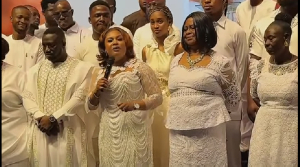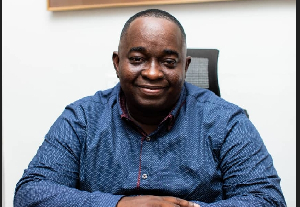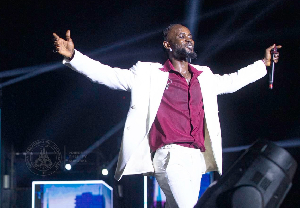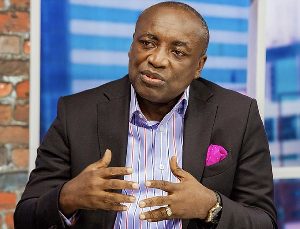I write this article as a result of the criticisms raised by readers about a previous article titled “Chieftaincy, Power Base and Social Contract” published on 30th November, 2007 on this e-newspaper (www.ghanaweb.com/GhanaHomePage/features/artikel.php?ID=134986). Some readers felt the theoretical underpinnings of the article made it less qualified to provide any meaningful explanation of the institution of chieftaincy as practiced in Africa and Ghana in particular. And yet most African scholars who have written something about chieftaincy did well at describing it without telling us why it came to be in the first place. Have you ever wondered why there are chiefs? Why we needed chiefs? Is there any explanation of emergence of chieftaincy? The previous article did but fell short of the adequate details the people of Ghana may have wanted. In this article, therefore, I attempt further explanation of the social contract that underpins the institution of chieftaincy.
Social contract as used in social science stems from arguments by some philosophers that in the state of nature (before we live in groups with law and order) there is no harmony because men, both strong and weak, wish to fend for themselves alone and as a result man is to another an enemy. This is because we each want whatever resources available for ourselves alone and as a result we may end up killing each other. Some critics would say that we are collectivistic to begin with so such cannot happen. Research in psychology yet suggests that humans are not born with such ideas. Ghanaians born and raised in individualistic cultures are not different from the Caucasians in terms of individualism. This means that that stems from our socialization. Why do we then socialize our children that way? Why were we ourselves socialized that way? Perhaps, our great, great, great, great-grand parents were smart to note that in such situation we ought to be each other’s keeper to survive. In this state of nature, it is said that life is brute, short and nasty and that the weak is as strong as the strong in that each is capable of killing each other. To understand a state of nature, think of any civil war-stricken state. There is total disregard for one another. It continues that to avoid this state men come together to develop a contract in which each member give up his or her right to someone appointed as leader for reasons including ability to provide protection and ensure law and order. This way a leader role and follower roles emerge. A way to conceptualize the social contract is to think of the peace accords that are usually signed between or among the warring factions. They embody their giving up of something to each other in return for peace and order. This is usually codified in some form for future reference.
What does this mean in terms of the African situation? In most cases what one hears about the history of towns and villages goes like this: a hunter went hunting one day and got to a place where there was a tree called… and he rested under the tree and accidently left some seeds there. When he went the next time the seeds had geminated and he referred to the place as …Later he moved to settle there with his family and others joined him there and it grew into a village. Wherein lies the social contract in this typical migration-settlement origin of most cities, towns and villages? In such new settlements it is decided that the one who first settled there and the family becomes the royal family. Usually, a symbol of royalty is needed so a black stool is required. In some instances a person from the chosen royal family is required for sacrifice for the sacrament of the stool. That stool traditionally represents the point of coming together of the spirit of the ancestors and the living, symbol of authority and a seal on the social contract between the chief and the people. Again, when a chief is being installed the oaths sworn goes like this “I will come whenever I am needed whether in rain, night,…”. This and other statements said by the chief during the coronation signify the reaffirmation of the social contract between him and his people. He promises to protect the people and lead them in development and this implies that the people must be submissive to him or must be prepared to give up some of their freedom to him to enable him provide the protection and development needed. This social contract was usually not codified or written for reference and this makes it difficult for people to easily point out wrong-doings on the part of the chiefs. Only seriously gross abuse of power or disregard for customs could create serious problems for the chief. It is believed he knows what is in the best interest of his people. Is this really true? This arrangement was perfect when we lived as tribal groups.
What is the situation today? The formation of nation-states superimposed on the tribal groupings cut across tribal boundaries requiring a new kind of social contract. This contract is largely embodied in our constitution. The seal on this contract includes the national flag, coat of arm, national pledge, and other state assets that bind us together. These are to remind us that we live in a nation-state that transcends the ethnic groupings. In this new way of governance, the ethnic groupings cannot assure people the protection they crave for; only the new nation-state has the capacity to provide protection and as a result any protection offered by chiefs which is not in line with the constitution is considered illegitimate. Consider this, who will mediate if an ethnic group in Ghana gets attacked by one of our neighboring states? Will it be considered an attack on that ethnic group alone or an attack on Ghana? Suppose it is considered an attack on the ethnic group alone. Will the chief be able to assure them of protection against the attacking state with sophisticated armory? Suppose the ethnic group has the wherewithal to acquire similar weaponry. Will it be allowed by the constitution of Ghana to acquire them? These questions clearly indicate that the former social contract that the chiefs held with their people and sealed by the black stool is not possible to be maintained by the chiefs even if their people wish them to do so. It is important to note that the former social contract was not for fun; it was to serve a purpose.
What are the worries of the chiefs and the pro-chieftaincy? It is simple: the chiefs are no longer able to wield the same kind of influence they used to have over their people. Their argument goes like: “the youth no longer respect their elders”. What is missing in their protestation is the lack of recognition that the youth now know they can live their lives without the help of the chiefs. So the complaints of the chiefs are not that the constitution does not recognize them. It is a yearning for more power than it is given today by the constitution or the good people of Ghana. What do they need more power for? To able to fulfill their former social contract with their people? But typically, in social exchanges people evaluates the gains and costs in relationships with others, be they chiefs, friends or in democratic governance to see what they lose in the relationship is commensurate with their gains. People will start questioning why the quest for more power. My ultimate aim is to communicate to all concerned that the situation has changed and chieftaincy needs reform or risks being overtaken completely by events.
In the light of this and what I said in the previous article, I here argue that it may not be the best to rush into throwing away the institution of chieftaincy. This is because it symbolizes part of our way of living together, though it does not equate our culture in its entirety. We should attempt to modify it on the basis of whatever that will come out of our discourse on this topic. My best recommendation will be for the institution to change the means by which it earns the ability to influence others; the chiefs in the olden days may say that if you don’t do this I will take away your father’s land and banish you. Any chief who says this will be laughed at these days. Realizing that their former way of influencing is no longer effective frustrates them, hence their cry for more power. However, that cannot happen as power is earned not demanded in a vacuum. This then means that the way to look for new ways of influencing people does not lie in the quest for more power from the constitution. It lies in searching for new effective ways of influencing people otherwise I will take their continual cry for more power as a display of their usual way of governing, authoritarianism. The new governance system is based on meritocracy; one must earn the power by virtue of exercise of political rights and not because one belongs to a family, which accidentally or otherwise came to be known as the royal family. The question is: So what? Presidents, Ministers, DCEs and others earn their statues not by birth but largely by hard work as recognized by the new social contract. Every part of our life is now cast in the new way of thinking about how we relate to one another. Even psychologists need an Act of Parliament to make the practice of professional psychology in Ghana legitimate and to govern client relationship, be it Industrial and Organizational, Social or Clinical Psychology, legitimate. The bill is still at the draft stage after some 5 years.
In view of this I argue that the best way forward for the institution is to change the basis of its influence (power). This requires both finding the most suitable source of power and developing a new social contract. The most suitable source of power according to the best of my knowledge is personal power which I described in the previous article as including expert and referent. This new source of power can make them as more influential as they wish to be but within a boundary. That is to say that people should know why they should allow themselves to be influenced: what are the costs and benefits of submitting oneself to their influence? A new social exchange based on a brand new social contract is needed. How? The chiefs should look for gaps in the new governance system and demonstrate to us how they can fill them without violating what our constitution stands for, rule of law. Can a reformed chieftaincy with respect for rule of law eve happen? What about their cry for a bicameral legislature with chiefs forming the upper chamber? So that they can make laws based on what? Logic or traditions? Otherwise if reforms based on the above premises fail, what can we do next? Our nation-state needs to redefine the place of the chief. We may learn from the British and others who had monarchical rules. What is there in their experience for us? The monarchs are now ceremonial heads. I push the idea that since our chiefs are not really prepared for running a modern state or any of its apparatus if every town, city and village should even elect town mayors to be administrative heads to work with the chiefs. For instance, I personally cannot tell if any chief can ever run AMA, TMA or KMA in this democratic dispensation that most often goes with people arguing out the points of view on issues of concern to the assemblies. Can a chief take something like: “Nana, I don’t think what you are saying makes sense in the light of the available evidence.” when this is said without diplomacy as one may observe in debates that go on. The answer may be NO. Chiefs are to be revered even if they are wrong. Can democracy be run like that with unnecessary diplomacy? Wee de oye nana o! Enti oye ade a enye a yenka? Can any chief take the insults H.E Prez Kufour takes every day? NO. Will Prez Kufour want punish someone for insulting him? NO. Will a chief want to punish someone for insulting him? Maybe YES. Will a chief be angry if a cartoonist paints him like a goat? Will a politician take such a cartoon too serious? The norm in democracy is speaking out in whatever way you want; the norm in chieftaincy is not challenging authority publically. Can the chiefs stand it if a journalist asks them in a press conference why, for instance, a piece of stool land was sold? Ceremonial status may be ok if changing the power base and the social exchange does not work for them.
In this article, I tried to provide an explanation based on theory and research that is less technical without losing its theoretical purity. Ghanaians do not enjoy theories because some say they have nothing to offer in practice. What they don’t know is everything from education, ICT, democracy, private sector as the engine of growth, to micro and macro-economic stability are based on theories, many of which African scholars haven’t done anything special in way contributions. If there are any alternative African theories or models, they should let us know. I am even tired of using Western theories based on world views different from ours. The contemporary Ghanaian intellectual is in quest of theories based on our own world view. Give us hunches and we will subject them to theory-building. As a case in point, I am not in the US only to learn “their theories” but also to identify the cross-cultural differences and how they matter in terms of professional practice of Industrial and Organizational Psychology in Ghana. To those who think the white man’s theories are wrong simply because they are obroniwaawu, Prez Kufour’s administrations relies so much on economic models developed in the West yet are helping Ghana maintain some economic stability. Let’s not throw away the baby with the bath water just in the name of Afrocentrism. Let’s make the best we can of whatever works for us. What we all want is a prosperous Ghana no matter who helped us; it is better to follow what works than to stick to what is no longer working. In Organizational Psychology, we say that organizational atrophy, operating with things that were successful in the past but are no longer effective, leads to organizational decline. I once again call on others to contribute to this intellectual discourse and by so doing we together give birth to a multidisciplinary subject today known as Chieftaincy Studies and together write its first ever textbook, Discourse on Chieftaincy Issues; we and perhaps some younger generations know most of the answers to the “how” questions of chieftaincy and less of the “why” questions. Usually, the “why” questions disturb the status quo and that is exactly what some people dread. That is my vision for this debate; this is because we have taken so aspects of our life for granted that we tend not to even sometimes understand them. Understanding chieftaincy properly will help us understand its role in our democratic governance.

Views expressed by the author(s) do not necessarily reflect those of GhanaHomePage.














